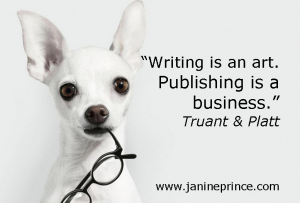
Lots of us are fans. I bet you are, and I know I am.
There are loads of writers that I want to pay tribute to over time, people who’ve shaped my reading and so my mind and so my writing. Today though, and probably only ever today, I will honour a TV show because it is the 50th anniversary of Dr Who.
Dr Who was my second love and it has been a complicated relationship from the very beginning. He snuck in through the “cathode ray nipple” and began to challenge my world and bring excitement to a safe and happily mundane childhood.
I was little, very little, when the ABC (That’s the Australian BC, not the American) began showing Dr Who at weeknights before the news. Watching the news was my mum’s ritual and she would put the TV on while she prepared dinner so that she wouldn’t miss the start of it. Forever in my mind the two theme songs are entwined around feeling safe, hungry and a little bit hopeful that there might be pie for dessert. Mum was with us, adult things were being taken care of, and adventure was available in easily manageable 25 minute episodes.
It was the third Doctor (John Pertwee) that I first remember, and it took me a while to warm to him. I wasn’t sure where I stood with him and I didn’t always like how he spoke to other people. I thought he was a bit of prick actually, but when you’re little you’re not allowed to say that about adults, especially clever adults with power. You knew he had power because the Brigadier always did what The Doctor told him to do. Even when the Brigadier didn’t like it. So he was obviously as powerful as a mum, maybe more. Then something magical happened, and he was still the Doctor and in the TARDIS, but he was someone new. Hello to Tom Baker. BOOM. That was it. I was hooked.
I grew up with Tom Baker’s gorgeous goofy grin (he was The Doctor from 1974 until 1981) and when he left, I sobbed. I couldn’t not. A part of my life was over.
The Doctor changed again, he was still there, in the TARDIS, but now he was in cricket whites and as far as I knew he was Tristan from All Creatures Great and Small (another beloved show in our house, based on the James Herriot books).
I was torn. Who was this new man? I didn’t want to let go, I didn’t want him to change. Change had drawn me in and now it pushed me away. Complicated. I compared, I watched repeats. The same way you don’t tell the truth about the old man, you let it slide that the handsome new one is not to your taste.
I had entered the realm of fandom.
Don’t get me wrong, life went on. I could get my own books out of the library, I had my own radio, I even went to high school. In my own small ways I started to participate in a broader cultural life. When I started to write, it was as a fan. My first major foray into story was a fanfic piece based in the The Day of the Triffids world.
Writing is an odd thing to do. Writers use everything they’ve ever come across to make new things. Or at least new-enough. It is a maelstrom of influences and quotes and vibes and kaleidoscopes of blitzing colours and soundtracks and sweet adjectives in here, and as each word squeezes its way out through that mix, it gets a flavour and a tone and a little bit of something else and eventually, if you’re lucky, you have your own voice. And if you’re very unlucky, you’ve got somebody else’s voice. It happens.
Dr Who took a big long rest pause around about the same time I tried to grow up and be an adult. He was off-air from 1989* until the reboot in 2005. I spent those years being employed and largely not-writing, or trying to not-write because writing was stupid and pointless and who would read it anyway? These were the ‘secret scribble’ years it is a terrible thing to live with, that relentless self loathing.
Self loathing leeches into everything else too, don’t you find? For me it was hard to be happy and joyful in the world when the eyes I used had a film of despair over them. Fiction was there to escape into, bountiful, amazing, expansive fiction. So many books, such amazing worlds and stories. I read everything, but I was addicted to Science Fiction, it was so satisfying and so safely otherwhere!
But where does being a fan lead the creative mind? It leads to the desire to share and to create. If you’re too attached too closely to a specific thing, it can lead to living and working only within that realm. Every time I tried to write (for years!) what came out was just wrong and contorted. It just never worked the way I wanted it to. I was a writer missing the ‘story’ gene.
Time to confess something.
I hated the new Dr Who. Hated it. I watched enough that I could disparage it. I watched the next season too (just to be sure it was rubbish). I was ensnared in being ten years old and hating whoever killed Tom Baker. I was ensnared in being despairing of ever finding my voice, I was ensnared in feeling betrayed by the promises of SciFi for a shiny future in which, if not TARDISes (yes, that is the plural) then surely at least spaceships were coming. They never came. I did not know I was lost.
Luckily, one day, after another of my invective-filled rants about how rubbish the new Dr Who was, a dear friend showed me how lost I was. He said “I like having a show I can watch with my eight year old nephew.” I’d like to think that at the time I had a graceful response to that, but I doubt that I did.
It is a show for children.
I watched it again, as a child would, for fun. I thought about letting it be an escape. I thought about what my nieces might be watching after school homework and before dinner. I remembered the fun things about being a fan of something but not so attached to that identity that it needs to be supported by an encyclopedic knowledge of production details. If it was just for fun, it was ok to miss episodes or to wink into the camera occasionally or for there to be zippers in the back of aliens. I started to have a really good time. I started to be inspired.
So I may not have been there for all 50 of your years Doctor, but the nearly 40 that I remember have been pretty important to me. You, in all your different faces and wonderful coats and delicious hats, you have helped me to find my self. You have helped my friends guide me back from a long darkness, and you have helped me find my own voice from inside the vortex.
Thank you Dr Who and Happy Anniversary.
(*I’m sorry to be rude, but I can’t count the 1996 Eighth Doctor. Sorry. You did the best you could. Let’s not play the blame game.)




